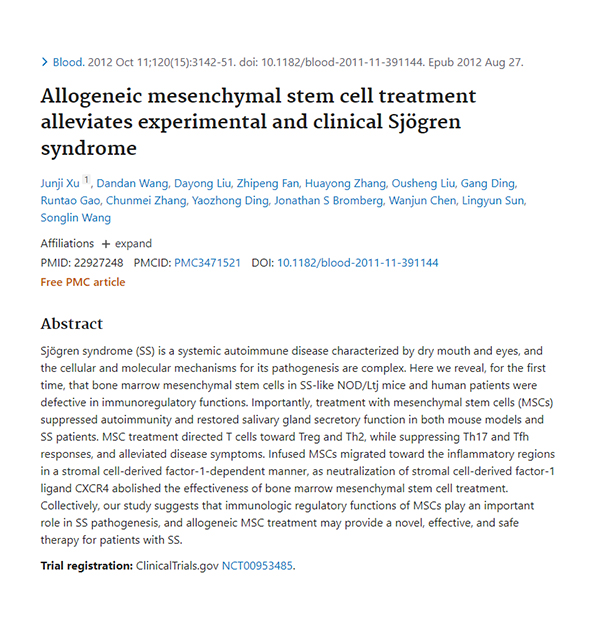Psoriasis · Atopy
WHY Cellpia
Stem cell immune system normalization, intractable disease
Stem cells have immune-modulating effects and powerful anti-inflammatory effects. The cells regulate various immune factors that affect the development of psoriasis, reduce skin inflammatory response, relieve dryness and redness, and improve psoriatic skin. The underlying principle is to effectively eliminate the root cause of psoriasis by regenerating damaged skin tissue and improving the immune system.
Stem cell psoriasis
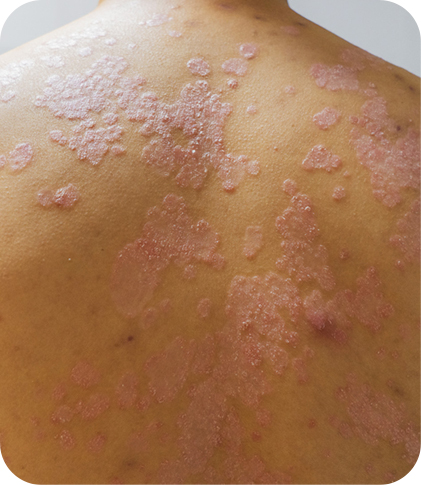
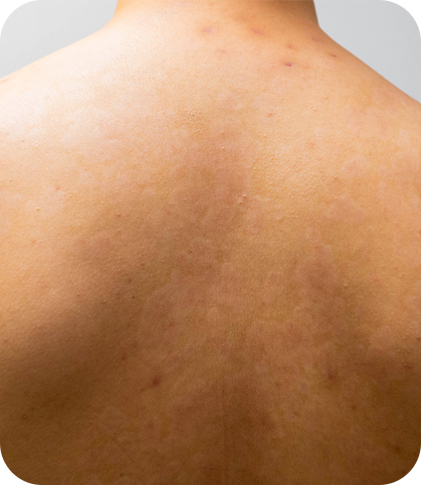
Psoriasis is an inflammatory disease caused by the hyperproliferation of keratinocytes in the skin when the skin's immune system is imbalanced. Psoriasis caused by an immune deficiency has a characteristic that the symptoms seem to be getting better, but deteriorate again at some point. Arthritis or cardiovascular disease may also occur, so it is important to focus on addressing the cause of the disease in the treatment.
In the research data of the US Stem Cell Research Center BioXcelerator, it is stated that ‘stem cells produce various growth factors that promote the growth and repair of damaged cells while suppressing the immune response. This action has been shown to treat various autoimmune diseases, and can even treat psoriasis.’
-
01Strong anti-inflammatory effect
Stem cells have immune-modulating effects and powerful anti-inflammatory effects. The cells regulate various immune factors that affect the development of psoriasis, reduce skin inflammatory response, relieve dryness and redness, and improve psoriatic skin. The underlying principle is to effectively eliminate the root cause of psoriasis by regenerating damaged skin tissue and improving the immune system.
-
02Body balance and immunity stabilization
Stem cell treatment strengthens skin immunity, and thereby, balances the body so that allergic reactions do not occur, and helps to stabilize the immune system. This also shows a sufficient improvement effect for psoriasis, a rare intractable disease caused by toxins in the blood vessels of the body.
Stem cell atopy
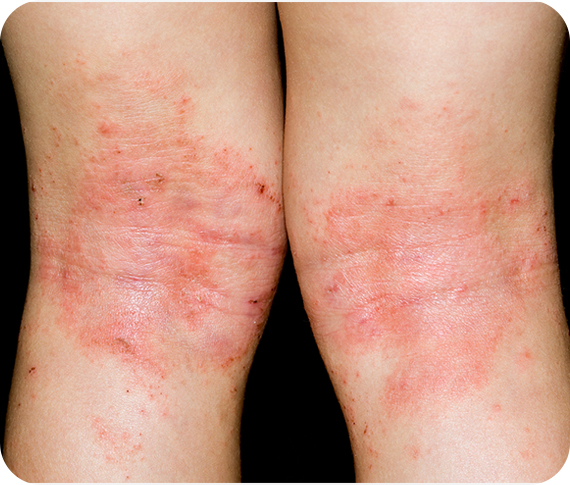
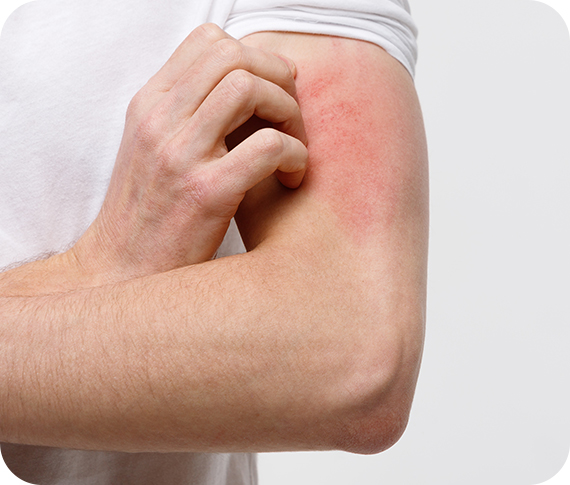
Atopic dermatitis is an inflammatory skin disease accompanied by itching and sores due to an allergic reaction. It is important to seek treatment as soon as possible before it spreads throughout the body and worsens symptoms. Stem cells help in the treatment of atopy, a chronic skin disease that repeats exacerbation and improvement. The underlying principle is to fundamentally improve the symptoms of atopic dermatitis, which is caused by the breakdown of the immune system and hypersensitivity, through stem cells with excellent regenerative power.
In the medical paper of the Japanese Society of Allergy (JSA) ‘Status of Mesenchymal Stem Cells in Allergic Diseases (2019)’, it is stated that ‘Mesenchymal stem cells exert anti-inflammatory effects on atopic allergic diseases including asthma, allergic skin disease, allergic rhinitis, and allergic conjunctivitis. Due to its immunosuppressive properties, tissue recovery ability, and secretion of various biological factors, etc., mesenchymal stem cell therapy has shown efficacy in anti-allergy clinical studies.’
-
01Minimize inflammation levels, promote regeneration
Injection into the skin in need of improvement directly or through intravenous infusion alleviates the pathophysiology of atopic dermatitis with a desensitizing effect. It lowers skin inflammation levels and promotes wound regeneration by strengthening skin immunity, and brings about the effect of preventing recurrence by improving the cause.
-
02Root cause approach treatment
It relieves symptoms by addressing the root cause and strengthens the skin's own regenerative power. In the case of wounds or scars that do not heal well for various reasons, stem cell treatment is effective in wound healing and skin regeneration in scar areas.
Stem cell sjogrenosis
-
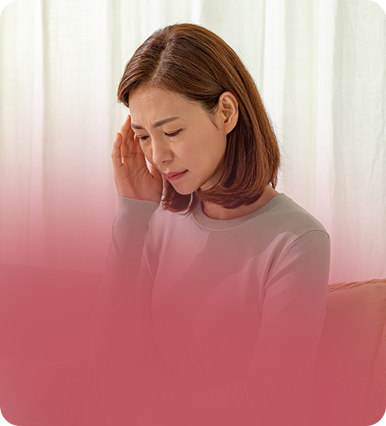

First major symptoms recurrent inflammation and dry eye syndrome
-


Second major symptom dry mouth (more than 3 months)
-


Third major symptom severe fatigue.
Sjogren's syndrome is one of the autoimmune diseases in which the immune cell attacks its body due to a problem with the immune system. Lymphocytes, which are inflammatory cells, invade the exocrine glands that secrete fluid, reduce saliva and tear secretion, and cause dry mouth, dry eyes, and dry cough. In addition to dry skin, joint symptoms such as rheumatoid arthritis, Raynaud's Syndrome where hands get numb and white hands when exposed to cold, interstitial pneumonia in which autoimmune inflammation invades the lungs, and neuralgia and fibromyalgia may develop. In particular, malignant lymphoma occurs in about 5% of cases, and therefore, special management is required.
In the thesis “Relief of experimental and clinical Sjogren's syndrome with mesenchymal stem cell therapy” of the US National Institutes of Health, it is stated that “when treated with mesenchymal stem cells (MSCs), autoimmunity is suppressed and salivary gland secretion function was restored in both mouse models and patients with Sjogren's syndrome. MSC injection is an effective treatment for SS and has important implications for further exploration of MSCs as novel therapies for patients with SS and other autoimmune diseases. It has been confirmed that SDF-1-mediated MSC migration plays an important role in controlling immunomodulatory function and pathogenesis of SS and other autoimmune diseases."
